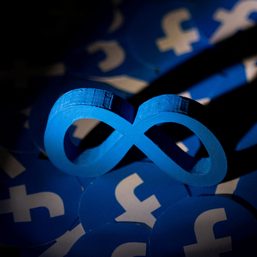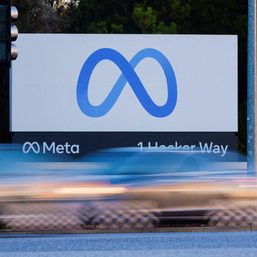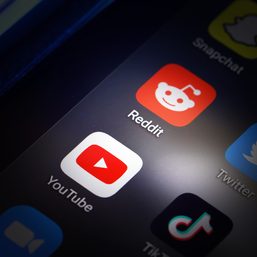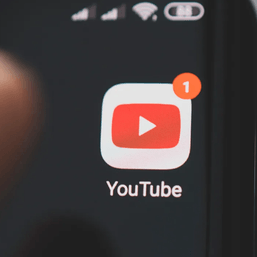SUMMARY
This is AI generated summarization, which may have errors. For context, always refer to the full article.
![[OPINION] When online violence doesn’t stay there](https://www.rappler.com/tachyon/2022/07/TL-When-online-violence-doesnt-stay-there-July-29-2022.jpg)
It was of all things, a law school graduation. With no less than the Chief Justice slated as the guest speaker. Inside a campus that offered its community solace, a man shot and killed three people, and wounded two others. And with it, the phrases “active shooter” and “school shooting” entered the Filipino vocabulary. One would think that the incident would merit collective condemnation. As Quezon City Mayor Belmonte said, it “has no place in our society.”
Yet within hours, several influencers and their followers began churning out content that painted the killer as a “crusader,” blamed the victims, or mocked the graduates and the Ateneo community. It was a spectacle that tested one’s belief in the goodness of Filipinos. That is until, one took a closer look at what was really unfolding.
The gunman is of all things, a doctor. But unlike most physicians this one had 70,000 online followers. He operates within a much larger network of vloggers and influencers. And they were closing ranks around him. “Stay strong doc!” one comment went. Others praised him for bringing his grievance to the public. This is the alternate reality engendered by disinformation operations. Where students are bashed just for attending rallies, yet the killing of three people is celebrated as “legitimate protest.”
It is tearing this country apart. Researchers are warning that radical polarization is coalescing in the thousands, if not millions of groups fueled by disinformation. It used to be inconceivable for Filipinos to mock, much less celebrate a tragedy that placed law students, their parents, and the country’s highest judicial officer in danger. Not anymore.
“Nagbarilan na yata ang mga Pinklawan at Dilawan @ateneo.” That one came from a desk editor, a former employee of Radyo Inquirer. It was also echoed by countless more. When we label a person to deny them their humanity, the label becomes their identity. And any emotion that label is associated with, you can now superimpose to entire groups of people. To those radicalized by disinformation, Ateneans being “dilawan” justified the result. Being “pink” meant they deserve their fate.
It’s also how the gunman justified killing his targets. He labeled them “drug lords.” And that label alone legitimized the result. After years of eroding due process, abetting killings, and enabling impunity this is our new normal. Because saying “all communists are evil” is a step from “addicts deserve EJK” which is a heartbeat away from “nagbarilan na ang dilawans/pinklawans.” In a country engulfed by disinformation, one label simply replaces another.
This subtle fraying of society continues because while the elections may have ended, the weapons of mass disinformation have not been dismantled. With no political campaigns to win, they fuel new conflicts to keep their troll armies sated. What’s worrisome is that the next step in the evolution of troll farms involves radicalization to the point that real world harm is now being considered justifiable.
Responsibility also lies on the business model that allows disinformation to thrive. In 2020, the Wall Street Journal reported that an internal study warned Facebook that it was feeding its users “more and more divisive content in an effort to gain user attention and increase time on the platform.” As for the rise of online extremism, a quote from another internal Facebook report (2016) unearthed by the WSJ states, “64% of all extremist group joins are due to our (Facebook) recommendation tools.” When one ties these findings to the research that indicates that extremist behavior online is driven by a few hyper-partisan actors, one appreciates the proper context of what happened last July 24 in Ateneo.
For years the gunman spewed hate and disinformation. A lot of it targeted then vice president Leni Robredo. Once, he even asked for her address and threateningly posted a pink-colored rope. Yet, social media platforms did little as this stew was fed to his 70,000 followers. In an interview, Professor Fatima Gaw explains why – “because influencers share a mutually beneficial relationship with platforms, they may not act on it until grave social harm has been done.”
“This country (the USA) can survive a few angry trolls,” huffed a colleague from the US during one conversation on disinformation. After hundreds stormed the US Capitol during the infamous January 6 siege, he sounded less sure. Several perpetrators of the school shootings engulfing the US have been tied to online communities that are similar to those we see locally. When social media companies allow hate-filled communities to flourish, extremist ideas that were once kept at the fringe gain traction. They indoctrinate millions, while the truth being boring, struggles to catch up. Eventually, online hatred spills over and becomes real world violence.
This is the endgame of online impunity. Where a doctor can be radicalized to vigilante justice in the name of a “drug war.” Where even a news editor can forget years of training, publicly mock the loss of human life, and deride victims as “dilawans.” And where thousands celebrate the killing of three people as an example of “what needs to be done.”
We will continue to witness the radical polarization of our country because nothing is being done to fix that which is most broken. Politicians who use troll farms ignore signs that their electoral victories are coming at an increasing societal cost. Corporations who avail of these services (either troll farms or “surveillance capitalism”) in pursuit of financial targets do so even as they place our schools and communities at risk. The incentives in this business model need to be re-ordered. But how will that happen when those who can do so are the ones with the most to lose?
Others will have to take the lead. The key is to not lose focus, and more importantly, to not get lost in the weeds. Demand action from law enforcement for this incident but, don’t overlook the role of disinformation operators, as well as social media platforms who continue to shelter and enable communities of hate.
According to a Rappler analysis, up to 56.6% of Facebook posts and 45.4% of YouTube videos that mention the gunman “express support or sympathy” for what he did. As implied by the desk editor’s tweet, these include those who view “dilawans/pinklawans” and their communities (like Ateneo) as deserving targets. The age of polite disagreement has ended. In its place is a new reality – one where online violence, no longer stays there. – Rappler.com
John Molo practices commercial litigation and arbitration. He teaches Constitutional Law at UP, is a Trustee of the Philippine Bar Association and is a Past President of the Harvard Law School Alumni Association. He has argued several landmark cases before the Supreme Court. He works with #FactsFirstPh in fighting disinformation.
Add a comment
How does this make you feel?
![[DECODED] The Philippines and Brazil have a lot in common. Online toxicity is one.](https://www.rappler.com/tachyon/2024/07/misogyny-tech-carousel-revised-decoded-july-2024.jpg?resize=257%2C257&crop_strategy=attention)



![[Rappler’s Best] US does propaganda? Of course.](https://www.rappler.com/tachyon/2024/06/US-does-propaganda-Of-course-june-17-2024.jpg?resize=257%2C257&crop=236px%2C0px%2C720px%2C720px)









![[Uncle Bob] The carpenters](https://www.rappler.com/tachyon/2024/03/women-influencers.jpg?resize=257%2C257&crop=230px%2C0px%2C720px%2C720px)
![[OPINYON] Tungkol sa naging viral na social media conjecture](https://www.rappler.com/tachyon/2024/07/thought-leaders-conjecture-07262024.jpg?resize=257%2C257&crop_strategy=attention)







There are no comments yet. Add your comment to start the conversation.